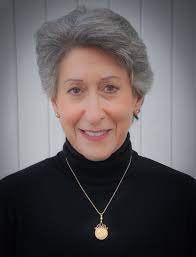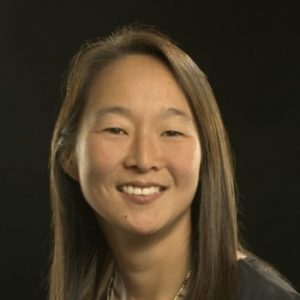
CME Grand Rounds Sanjiv Sam Gambhir Lectureship – “Imaging at the Speed of Light: Innovations in Positron Emission Tomography”
Simon R. Cherry, PhD
Professor
Biomedical Engineering & Radiology
UC Davis
Join from PC, Mac, Linux, iOS or Android: https://stanford.zoom.us/j/600003703?pwd=RjcwS2MvOG1qVkxyL3U0RmNtUDVWdz09
Meeting ID: 600 003 703
Password: 566048
Or iPhone one-tap (US Toll): +18333021536,,600003703# or +16507249799,,600003703#
Or Telephone:
Dial: +1 650 724 9799 (US, Canada, Caribbean Toll) or +1 833 302 1536 (US, Canada, Caribbean Toll Free)
International numbers available: https://stanford.zoom.us/u/acuqphnvqT
ABSTRACT
Positron emission tomography (PET) allows for sensitive and quantitative measurement of physiology, metabolism and molecular targets noninvasively in the human body. However, typical clinical PET scanners capture less than 1% of the available signal produced in the body. PET scanners also are not currently capable of precisely determining the location at which a particular decay occurs. These limitations present opportunities for further innovation that ultimately will impact molecular imaging research and diagnostic imaging with PET. This presentation focuses on 1) total-body PET imaging which greatly improves signal collection, allowing radiotracer kinetics to be assessed across the entire human body for the first time, and 2) the development of detector technologies that have a timing precision of ~ 30 picoseconds, enabling direct localization of radiotracer decays without tomographic reconstruction.
BIO
Simon R. Cherry, Ph.D. received his B.Sc.(Hons) in Physics with Astronomy from University College London in 1986 and a Ph.D. in Medical Physics from the Institute of Cancer Research, University of London in 1989. After a postdoctoral fellowship at UCLA, he joined the faculty in the Department of Molecular and Medical Pharmacology, also at UCLA, in 1993. In 2001, Dr. Cherry joined UC Davis and established the Center for Molecular and Genomic Imaging, which he directed from 2004-2016. Currently Dr. Cherry is Distinguished Professor in the Departments of Biomedical Engineering and Radiology at UC Davis.
Dr. Cherry’s research interests center around biomedical imaging and in particular the development and application of in vivo molecular imaging systems. His major accomplishments have been in developing systems for positron emission tomography (PET), in particular the invention of the microPET technology that was subsequently widely adopted in academia and industry and as co-leader of the EXPLORER consortium which has developed the world’s first total-body PET scanner. He also has contributed to detector technology innovations for PET, conducted early biomedical studies using Cerenkov luminescence, and developed the first proof-of-concept hybrid PET/MRI (magnetic resonance imaging) systems.
Dr. Cherry is a founding member of the Society of Molecular Imaging and an elected fellow of six professional societies, including the Institute for Electronic and Electrical Engineers (IEEE) and the Biomedical Engineering Society (BMES). He served as Editor-in-Chief of the journal Physics in Medicine and Biology from 2011-2020. Dr. Cherry received the Academy of Molecular Imaging Distinguished Basic Scientist Award (2007), the Society for Molecular Imaging Achievement Award (2011) and the IEEE Marie Sklodowska-Curie Award (2016). In 2016, he was elected as a member of the National Academy of Engineering and in 2017 he was elected to the National Academy of Inventors. Dr. Cherry is the author of more than 240 peer-reviewed journal articles, review articles and book chapters in the field of biomedical imaging. He is also lead author of the widely-used textbook “Physics in Nuclear Medicine”.

CME Grand Rounds Diversity Lectureship – Topic: TBD
Jennifer L. Eberhardt, PhD
Professor
Psychology
Stanford University
Join from PC, Mac, Linux, iOS or Android: https://stanford.zoom.us/j/600003703?pwd=RjcwS2MvOG1qVkxyL3U0RmNtUDVWdz09
Meeting ID: 600 003 703
Password: 566048
Or iPhone one-tap (US Toll): +18333021536,,600003703# or +16507249799,,600003703#
Or Telephone:
Dial: +1 650 724 9799 (US, Canada, Caribbean Toll) or +1 833 302 1536 (US, Canada, Caribbean Toll Free)
International numbers available: https://stanford.zoom.us/u/acuqphnvqT
ABSTRACT
Coming soon!
BIO
Coming soon!

CME Grand Rounds – “Community Based Partnered Research: Revisiting a Critical Concept for Radiology”
Christoph L. Lee, MD, MS, MBA
Professor
Radiology
University of Washington
Join from PC, Mac, Linux, iOS or Android: https://stanford.zoom.us/j/600003703?pwd=RjcwS2MvOG1qVkxyL3U0RmNtUDVWdz09
Meeting ID: 600 003 703
Password: 566048
Or iPhone one-tap (US Toll): +18333021536,,600003703# or +16507249799,,600003703#
Or Telephone:
Dial: +1 650 724 9799 (US, Canada, Caribbean Toll) or +1 833 302 1536 (US, Canada, Caribbean Toll Free)
International numbers available: https://stanford.zoom.us/u/acuqphnvqT
ABSTRACT
Coming soon!
BIO
Coming soon!

CME Grand Rounds – Topic: TBD
Jocelyn D. Chertoff, MD, MS
Professor
Radiology, Obstetrics & Gynecology
Chair, Radiology
Dartmouth Hitchcock Medical Center
Join from PC, Mac, Linux, iOS or Android: https://stanford.zoom.us/j/600003703?pwd=RjcwS2MvOG1qVkxyL3U0RmNtUDVWdz09
Meeting ID: 600 003 703
Password: 566048
Or iPhone one-tap (US Toll): +18333021536,,600003703# or +16507249799,,600003703#
Or Telephone:
Dial: +1 650 724 9799 (US, Canada, Caribbean Toll) or +1 833 302 1536 (US, Canada, Caribbean Toll Free)
International numbers available: https://stanford.zoom.us/u/acuqphnvqT
ABSTRACT
Coming soon!
BIO
Coming soon!

CME Grand Rounds Etta K. Moskowitz Lectureship – Topic: TBD
Elizabeth Krupinski, PhD
Professor & Vice Chair for Research
Radiology & Imaging Sciences
Emory University School of Medicine
Join from PC, Mac, Linux, iOS or Android: https://stanford.zoom.us/j/600003703?pwd=RjcwS2MvOG1qVkxyL3U0RmNtUDVWdz09
Meeting ID: 600 003 703
Password: 566048
Or iPhone one-tap (US Toll): +18333021536,,600003703# or +16507249799,,600003703#
Or Telephone:
Dial: +1 650 724 9799 (US, Canada, Caribbean Toll) or +1 833 302 1536 (US, Canada, Caribbean Toll Free)
International numbers available: https://stanford.zoom.us/u/acuqphnvqT
ABSTRACT
Coming soon!
BIO
Coming soon!

CME Grand Rounds – “Promote Your Academic Career Using Social Media”
Michael Gisondi, MD
Associate Professor & Vice Chair of Education
Emergency Medicine
Stanford University
Join from PC, Mac, Linux, iOS or Android: https://stanford.zoom.us/j/600003703?pwd=RjcwS2MvOG1qVkxyL3U0RmNtUDVWdz09
Meeting ID: 600 003 703
Password: 566048
Or iPhone one-tap (US Toll): +18333021536,,600003703# or +16507249799,,600003703#
Or Telephone:
Dial: +1 650 724 9799 (US, Canada, Caribbean Toll) or +1 833 302 1536 (US, Canada, Caribbean Toll Free)
International numbers available: https://stanford.zoom.us/u/acuqphnvqT
ABSTRACT
Coming soon!
BIO
Coming soon!

Roxana Daneshjou, MD, PhD
Assistant Professor, Biomedical Data Science & Dermatology
Assistant Director, Center of Excellence for Precision Heath & Pharmacogenomics
Director of Informatics, Stanford Skin Innovation and Interventional Research Group
Stanford University
Title: Building Fair and Trustworthy AI for Healthcare
Abstract: AI for healthcare has the potential to revolutionize how we practice medicine. However, to do this in a fair and trustworthy manner requires special attention to how AI models work and their potential biases. In this talk, I will cover the considerations for building AI systems that improve healthcare.

Mildred Cho, PhD
Professor of Pediatrics, Center of Biomedical Ethics
Professor of Medicine, Primary Care and Population Health
Stanford University
Title: Facilitating Patient and Clinician Value Considerations into AI for Precision Medicine
Abstract:
For the development of ethical machine learning (ML) for precision medicine, it is essential to understand how values play into the decision-making process of developers. We conducted five group design exercises with four developer participants each (N=20) who were asked to discuss and record their design considerations in a series of three hypothetical scenarios involving the design of a tool to predict progression to diabetes. In each group, the scenario was first presented as a research project, then as development of a clinical tool for a health care system, and finally as development of a clinical tool for their own health care system. Throughout, developers documented their process considerations using a virtual collaborative whiteboard platform. Our results suggest that developers more often considered client or user perspectives after changing the context of the scenario from research to a tool for a large healthcare setting. Furthermore, developers were more likely to express concerns arising from the patient perspective and societal and ethical issues such as protection of privacy after imagining themselves as patients in the health care system. Qualitative and quantitative data analysis also revealed that developers made reflective/reflexive statements more often in the third round of the design activity (44 times) than in the first (2) or second (6) rounds. These statements included statements on how the activity connected to their real-life work, what they could take away from the exercises and integrate into actual practice, and commentary on being patients within a health care system using AI. These findings suggest that ML developers can be encouraged to link the consequences of their actions to design choices by encouraging “empathy work” that directs them to take perspectives of specific stakeholder groups. This research could inform the creation of educational resources and exercises for developers to better align daily practices with stakeholder values and ethical ML design.

Ifeoma Okoye MBBS, FWACS, FMCR
Professor of Radiology and Director
University of Nigeria Centre for Clinical Trials
College of Medicine, University of Nigeria
Title: Deepening Collaboration with Stanford & Pennsylvania, Toward Developing Joint Strategies to Close the ‘Cancer Care’ & ‘Clinical Trial Volume’ Gap in LMICs
Abstract
In this seminar I will be addressing the dire cancer survival outcomes in low- and middle-income countries (LMICs), with a particular focus on Sub-Saharan Africa. Cancer survival rates in Sub-Saharan Africa are alarmingly low. According to the World Health Organization, cancer deaths in LMICs account for approximately 70% of global cancer fatalities. In Nigeria, the five-year survival rate for breast cancer, one of the most common cancers, stands at a disheartening 10-30%, compared to over 80% in high-income countries. This stark disparity highlights the urgent need for sustained comprehensive cancer interventions in our region.
Here, I will discuss the pivotal role in the cancer control sphere, of a new software, ONCOSEEK, capable of early detecting 11 types of Cancers! It’s particular emphasis on the Patient Perspective, which aligns with our ethos of need for holistic patient care. In addition I will discuss recent developments on collaborative effort with the Gevaert lab at Stanford University and the University of Pennsylvania.

Sophie Ostmeier, MD
Postdoctoral Scholar
Department of Radiology
Stanford School of Medicine
Title: GREEN: Generative Radiology Report Evaluation and Error Notation
Abstract
Evaluating radiology reports is a challenging problem as factual correctness is extremely important due to the need for accurate medical communication about medical images. Existing automatic evaluation metrics either suffer from failing to consider factual correctness (e.g., BLEU and ROUGE) or are limited in their interpretability (e.g., F1CheXpert and F1RadGraph). In this paper, we introduce GREEN (Generative Radiology Report Evaluation and Error Notation), a radiology report generation metric that leverages the natural language understanding of language models to identify and explain clinically significant errors in candidate reports, both quantitatively and qualitatively. Compared to current metrics, GREEN offers: 1) a score aligned with expert preferences, 2) human interpretable explanations of clinically significant errors, enabling feedback loops with end-users, and 3) a lightweight open-source method that reaches the performance of commercial counterparts. We validate our GREEN metric by comparing it to GPT-4, as well as to error counts of 6 experts and preferences of 2 experts. Our method demonstrates not only higher correlation with expert error counts, but simultaneously higher alignment with expert preferences when compared to previous approaches.

Jeong Hoon Lee, PhD
Postdoctoral Researcher
Department of Radiology
Stanford School of Medicine
Title: Leveraging Patch-Level Representation Learning with Vision Transformer for Prostate Cancer Foundation Models
Abstract:
Recent advancements in self-supervised learning (SSL), emerging as an effective approach for imaging foundation models, enable the effective pretraining of AI models across multiple domains without the need for labels. Despite the rapid advancements, their application in medical imaging remains challenging due to the subtle difference between cancer and normal tissue. To address this limitation, in this study, we propose an AI architecture ProViCNet that employs the vision transformer (ViT) based segmentation architecture with patch-level contrastive learning for better feature representation. We validated our model in prostate cancer detection tasks using three types of magnetic resonance imaging (MRI) across multiple centers. To evaluate the performance of feature representation in this model, we performed downstream tasks with respect to Gleason grade score and race prediction. Our model demonstrated significant performance improvements compared to the state-of-the-art segmentation architectures. This study proposes a novel approach to developing foundation models for prostate cancer imaging overcoming SSL limitations.